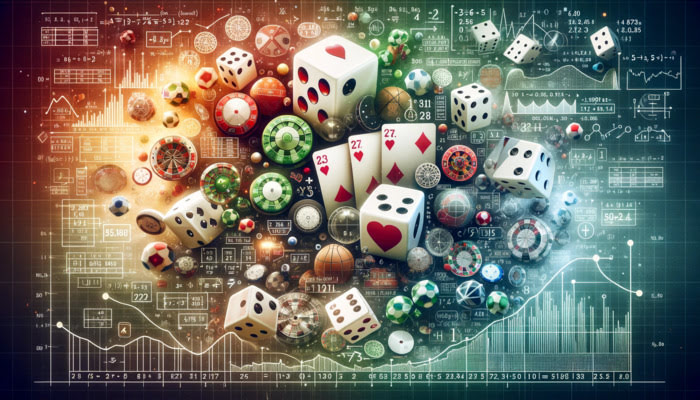
Understanding of Odds and Probabilities in Betting and Gambling
Grasping the complexities of odds and probabilities is a fundamental stepping stone in the world of betting and gambling. Whether you’re wagering on a sports event or trying your luck at a casino, understanding these concepts can significantly enhance your decision-making process and potentially increase your chances of success. This article delves into the critical aspects of odds and probabilities, offering insights for both novices and seasoned gamblers.
Basic Concepts of Odds and Probabilities
At their core, odds and probabilities are measures of likelihood. While ‘probability’ quantifies the chance of an event occurring, ‘odds’ are the ratio that compares the probability of success to the probability of failure. In betting, these concepts dictate the potential return on a wager and the risk involved.
Calculating Odds and Probabilities
Calculating odds is a vital skill in betting. The calculation often depends on the format of the odds, which can be fractional (like 5/1), decimal (6.00), or American (+500). Understanding these formats and converting them into probabilities (e.g., a 5/1 chance equates to a 16.67% probability) is key to making informed betting decisions.
Odds in Different Types of Betting and Gambling
Odds vary significantly across different betting platforms. In sports betting, odds are determined by the likelihood of a team or individual winning a game or event. In casino games, odds can vary widely. For example, blackjack offers some of the best odds for players, while slot machines typically have higher odds in favor of the house.
The Role of the House Edge
The house edge is a critical concept in gambling, representing the mathematical advantage that the gambling venue (casino, sportsbook, etc.) has over the players. Each game has its own house edge, influencing the potential returns for players. Understanding the house edge is crucial in choosing games and placing bets.
Strategies for Betting and Gambling
Successful betting and gambling require strategies that incorporate a solid understanding of odds and probabilities. One common approach is the value betting strategy, where players seek out bets with higher expected value than the odds suggest. Another is the progressive betting system, like the Martingale, where bets increase after a loss to potentially recoup losses with a single win. Additionally, bankroll management is essential, as it helps players control spending and avoid impulsive decisions. By combining strategic thinking with knowledge of odds, players can make more informed, calculated bets.

Common Misconceptions and Mistakes
Many bettors fall prey to common misconceptions, such as the ‘gambler’s fallacy’ – the belief that past events can influence future outcomes in independent events. This and other misunderstandings, like overestimating the chances of winning, can lead to costly mistakes.
Advanced Concepts in Odds and Gambling
For the advanced gambler, concepts like variance (the spread of results over a period) and expected value (the average return on a bet) become pivotal. These concepts help in understanding the long-term prospects and the true nature of gambling outcomes.
Technology and Odds: The Modern Twist
The advent of technology has revolutionized the way odds are calculated and bets are placed. With the use of algorithms and AI, betting platforms can now offer more accurate and dynamic odds. This tech-driven approach has transformed betting into a more data-driven and precise activity.
Conclusion
Understanding odds and probabilities is not just about numbers; it’s about making educated decisions in the world of betting and gambling. Whether you’re placing a bet at a sportsbook or playing a game at Jackpot Village Casino, a solid grasp of these concepts can greatly enhance your gaming experience and outcomes. As always, responsible gambling should be the top priority for every player.
